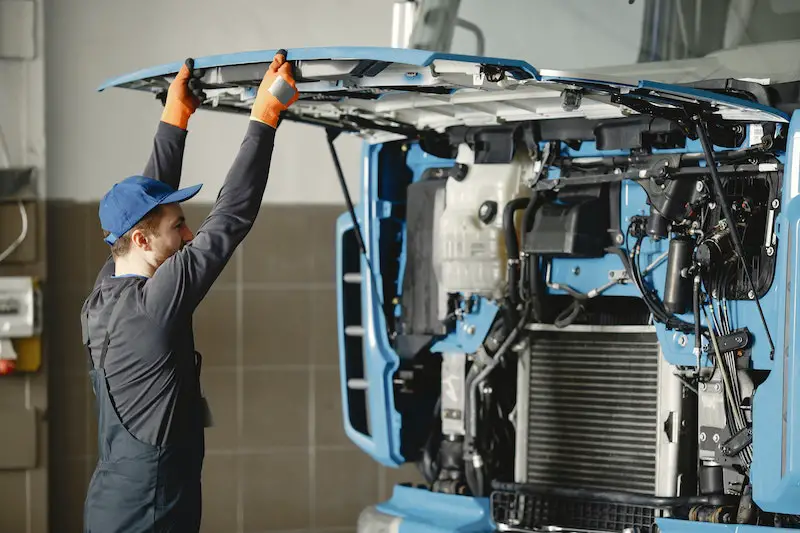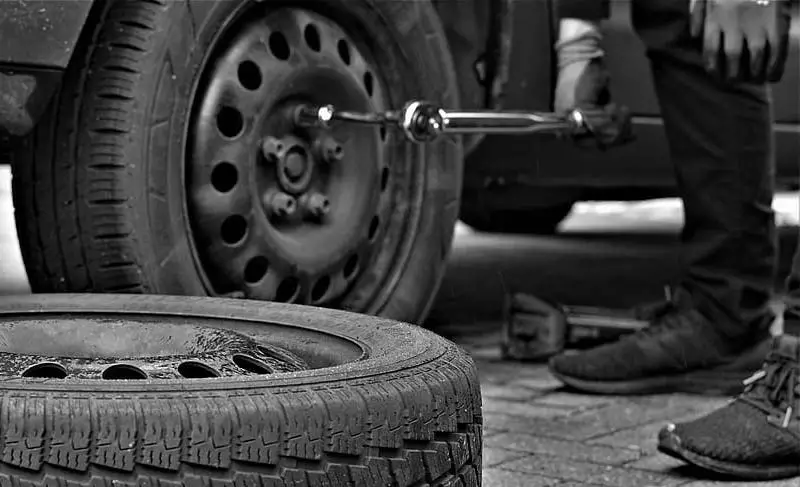Truck Maintenance Guide for Business Owners: Tips & Best Practices

For businesses that rely on trucks to transport goods, maintaining a fleet of well-functioning vehicles is essential for smooth operations and customer satisfaction.
Proper truck maintenance not only ensures safety on the road, but also helps extend the lifespan of your vehicles, reduce downtime, and minimize costly repairs.
In this guide, we’ll cover essential truck maintenance tips and best practices that every business owner should know.
Truck Maintenance Tips and Best Practices

1. Establish a Maintenance Schedule
Create a structured maintenance schedule based on the manufacturer's recommendations and the specific needs of your trucks. Regularly scheduled maintenance prevents unexpected breakdowns and keeps your fleet running efficiently.
2. Routine Fluid Checks
Monitor and replenish essential fluids, including engine oil, coolant, transmission fluid, brake fluid, and power steering fluid. Regular fluid checks prevent overheating, friction, and component wear.
3. Engine Care
Regularly inspect and clean the air filters, fuel filters, and PCV valves. Follow recommended oil change intervals and ensure the engine is properly tuned to maximize fuel efficiency and performance.
4. Tire Maintenance

Check tire pressure, tread depth, and overall condition regularly. Rotate tires at recommended intervals to ensure even wear and extend tire life.
Well-maintained tires improve fuel economy and handling.
5. Brake System
Maintain a functional brake system to ensure driver safety and cargo security. Regularly inspect brake pads, rotors, calipers, and brake lines.
Address any signs of brake wear, such as squealing or pulsation, promptly.
6. Cooling System
Keep the engine from overheating by checking the radiator, hoses, and water pump. Flush the cooling system as recommended to prevent corrosion and maintain proper engine temperature.
7. Electrical System
Inspect and test the battery, alternator, starter, and all electrical connections. Faulty electrical components can lead to breakdowns and disruptions in your business operations.
8. Transmission and Drivetrain
Follow recommended maintenance intervals for transmission fluid changes and inspections. Ensure that the drivetrain components, including the driveshaft and universal joints are well lubricated and in good condition.
9. Exhaust System
Regularly inspect the exhaust system for leaks, rust, and damage. A well-functioning exhaust system reduces harmful emissions and prevents noise pollution.
10. Steering and Suspension
Maintain proper steering and suspension systems to ensure safe and comfortable driving. Regularly inspect components such as tie rods, ball joints, shocks, and struts.
11. Regular Cleaning
Regularly wash and clean your trucks to prevent rust, corrosion, and dirt buildup. A clean exterior improves your company's image and helps maintain the vehicle's resale value.
12. Maintain Records
Keep detailed records of all maintenance and repairs performed on each truck. This documentation helps track the maintenance history, diagnose recurring issues, and plan for future maintenance needs.
13. Train Drivers
Educate your drivers about proper truck operation and maintenance practices. Encourage them to report any unusual sounds, vibrations, or performance issues promptly.
14. Emergency Kit
Equip each truck with an emergency kit containing essential tools, spare parts, and safety equipment. This can help drivers handle minor issues on the road and ensure their safety in case of emergencies.
15. Partner with Professionals

While some maintenance tasks can be done in-house, it's important to establish a relationship with a reputable truck maintenance and repair shop. Professionals can provide specialized services, diagnostics, and expertise to keep your fleet in top condition.
In Conclusion
Maintaining a fleet of trucks is a crucial responsibility for business owners. By following this comprehensive truck maintenance guide, you can ensure the safety of your drivers, the reliability of your vehicles, and the overall success of your business.
Implementing a proactive maintenance strategy will not only save you time and money, but also enhance your reputation as a reliable and efficient provider of goods and services.













![6 Content Creation Ideas for Aspiring Student Influencers [node:title]](/sites/default/files/styles/front_featured__front_/public/smiley%20woman%20with%20ring%20light%20content%20creator%20influencing%20ideas.jpeg?itok=xZW21mJh)

























